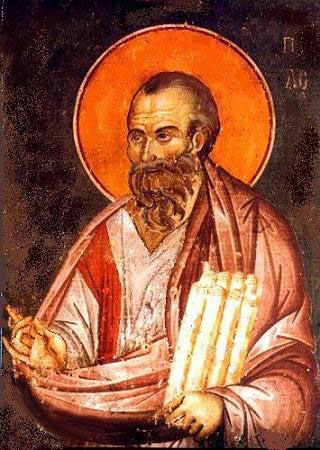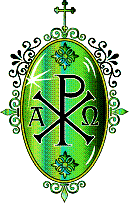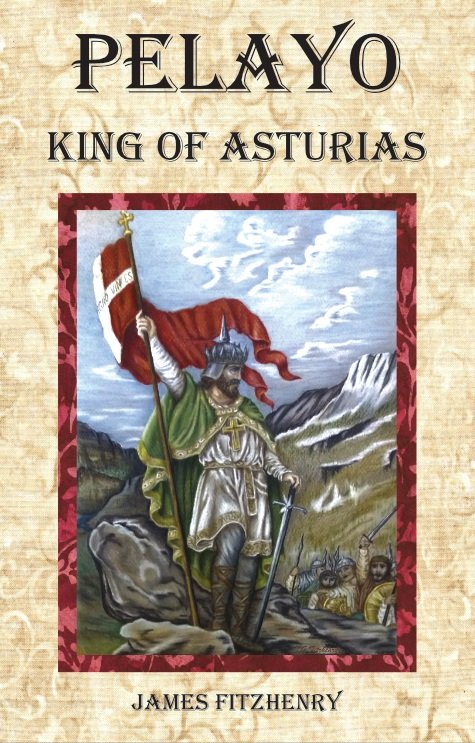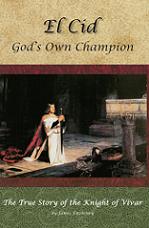
St Polycarp, Bishop and Martyr
January 26
St Polycarp was a disciple of the Apostle St John, and was born about the seventieth year of the Christian era. He was a Christian from his infancy, and on account of his extraordinary piety was greatly beloved by the apostles, his teachers.
St Irenaeus, Bishop of Lyons, writes that he had had the good fortune, when young, to know our saint, who was then far advanced in years, and remark how strongly impressed on his mind were the instructions which he had received from him, and with what delight he remembered having heard St Polycarp recount his conversations with St John and others who had seen the Reedemer.
St Polycarp was consecrated Bishop of Smyrna by St John himself before this apostle’s banishment to the Island of Patmos. It is looked upon as certain that our saint was the angel, or Bishop of Smyrna, commended by the Lord in the Apocalypse: "And to the angel of the church of Smyrna write…I know they tribulation and they poverty; but thou art rich…Be thou faithful unto death, and I will give thee the crown of life."
St Polycarp governed the church of Smyrna seventy years, according to Fleury, with so much prudence and approbation that he was regarded as the principal of the Asiatic bishops, on account of the great veneration in which he was held. When eighty years of age, he went to Rome to consult with Pope Anicetus on some points of discipline, particularly regarding the time at which Easter should be celebrated. St Polycarp’s delay in Rome was very useful to the faithful, as it afforded him an opportunity of confuting the heresies of that period.
Meeting the heresiarch Marcion, who inquired of the holy bishop whether he knew him; “Yes,” answered St Polycarp, “I know thee to be the first-born of the devil.”
On his return to Asia, St Polycarp suffered much in the persecution which the Emperor Marcus Aurelius raised against the Church, and which was particularly felt at Smyrna, where the proconsul, Statius Quadratus, was exercising the most barbarous cruelty against the faithful. Amongst other acts of persecution, he caused twelve Christians, who were brought from Philadelphia, to be devoured by wild beasts.
Excited by this bloodshed, the pagans were loud in their demands for the slaughter of the Christians, particularly of St Polycarp, who failed not on his part to encourage his flock to the most heroic proofs of constancy, in suffering torments and death for Jesus Christ. Notwithstanding the continual clamor raised against him, the saint wished to remain in the city for the discharge of his pastoral duties, but was obliged, by the importunity of the faithful, to retire to a house without the city, where, during his stay, he occupied the entire night and day in holy prayer.
After a short time, however, he was discovered. Three days previously to his arrest, he saw in a vision his pillow in flames, from which he knew that the martyrdom reserved for him was that of fire, and, turning to his companions, told them that he would be burned alive. The Christians, aware that the soldiers were in pursuit of him, removed him to another house; but a young servant, overawed by the fear of torture, revealed the place of his concealment.
Saint Polycarp was informed of this, but refused to retreat any farther, saying, with holy resignation: “The will of God be done.”
Full of heroic zeal, he offered himself to God as a victim destined for his honor, besought him to accept the sacrifice of his life, and joyfully delivered himself up to his pursuers. He received them into his house, ordered them a handsome supper, and desired only some time for prayer, which being granted, he was for two hours absorbed in meditation.
The captain and the soldiers were filled with confusion at the sight of the venerable bishop; and unwillingly executing their commission, departed with him at break of day. As the journey to Smyrna was long, they set him on an ass, and were conducting him to the city, when they met on the road two superior officers, called Herod and Nicetas, who took him into their chariot, and endeavored to persuade him to obey the imperial edict, saying, among other things, “What harm is there in sacrificing to the gods in order to save your life?”
The saint answered with fortitude that he would rather suffer every torture, even death itself, than consent to what they advised.
Upon this resolute answer they turned away in anger, regarding him as a man lost through his obstinacy, and pushed him from the chariot with such violence that his leg was bruised, or according to Fleury, broken by the fall.
The saint nevertheless, with undisturbed tranquility of mind, proceeded to the amphitheatre, where he was about to sacrifice his life. Upon entering it he heard a voice from heaven, saying:
“Be courageous, Polycarp; act manfully.”
He was presented to the proconsul, who endeavored to shake his resolution, saying: “Polycarp, thou art old, and should free thyself from torments which thou hast not strength to bear; swear, therefore, by the fortune of Caesar, and exclaim with the people, “Be the impious exterminated!”
The saint immediately replied: “Yes! Be the impious exterminated – but by the impious I mean the idolaters.”
The proconsul, thinking that he had gained him over, said: “Now blaspheme Jesus Christ, and I will discharge thee.”
The saint rejoined: “I have served Jesus Christ these fourscore and six years; he never did me harm, but much good; how can I blaspheme Him? How can I blaspheme my Creator and my Savior, who is also my judge, and who justly punished those who deny Him?”
The tyrant, still continuing to tempt him to deny Jesus Christ, Polycarp replied that he was a Christian, and considered it a glory to die for Christ.
The proconsul threatened him with wild beasts.
“Call for them quickly,” replied the saint; “I cannot change from good to evil; the beasts will help me to pass from mortal suffering to the glory of heaven.”
“Then,” said the tyrant, “thou shalt be burned alive.”
The saint answered: “Thy fire only lasts a moment; there is another fire which is eternal, and of that I am afraid. Why dost thou delay to execute thy threats?” This St Polycarp said with so much intrepidity, that the tyrant himself was struck with admiration; he ordered, however, a crier to make public proclamation that Polycarp had avowed himself a Christian; whereupon the entire multitude of pagans cried out:
“Let this destroyer of our gods die!”
The public shows having terminated, it was resolved that he should be burned alive, instead of being devoured by wild beasts. The pile was prepared by the pagans, and also by the Jews, who were particulary active in offering themselves as executioners. Polycarp put off his garments, and seeing they were about to fasten him to the stake, said:
“Leave aside these nails: He who gives me fortitude to undergo this fire, will enable me to stand still without them.”
They therefore contented themselves with tying St Polycarp's hands behind his back, and placed him upon the pile, whence raising his eyes to heaven, the saint prayed after the following manner:
“I bless Thee, O God, for having vouchsafed to make me a partaker in the Passion of Jesus Christ Thy Son, by rendering me worthy to offer myself as a sacrifice for Thy honor, that I may be enabled to praise Thee in heaven, and to bless Thee for all eternity.”
The pile was set on fire, yet the flames did not touch the body of the saint, but formed, as it were, an arch around him, while his flesh exhaled a most fragrant odor. The pagans, exasperated to see that the fire had no effect, transfixed him with a spear, and such a quantity of blood issued from the wound as extinguished the flames.
Thus did St Polycarp terminate his triumph, as is recorded in the celebrated epistle of the Church of Smyrna, which may be seen in “Ruinart’s Collection of the Acts of the Martyrs.” His martyrdom took place about the year 160.
*as told by St. Alphonsus de Liguori

Return to Saints Page
Return to Martyrs Page
Return to Roman Catholic Saints Homepage
NOW AVAILABLE!!
Pelayo's resistance initiated the nearly 800-year-long Reconquista to take back his country from the ruthless invader who had conquered his homeland and sought to erase his culture and his faith. His actions would lay the foundations of a Kingdom for Christ that would eventually reach around the world and spread the Catholic faith to millions of souls. Read more...
Please help us continue to bring high quality books to our readers at the lowest possible price! Click the link below! Thank you!
Now Available!
Defenders of Christendom
Battles - Honor - Miracles!
This book is filled with
amazing stories of little-known
Catholic heroes presenting
spectacles of bravery and
valor never exceeded in all the annals of history.
Demonstrating his
gallantry through daring feats
of arms, the knight's faith,
coupled with his marvelous
courage, made him nearly
invincible on the field
of battle.
read more . . .
Defenders of Christendom is
Learning to Love God
Especially for young children -
Now available as an e-book!
Available for only $2.99 US
as an ebook download.
Also available in Spanish!
The exciting life story of
the holy Catholic knight
known as El Cid!
Available for only
$22.95
The amazing life story of the
little known incorrupt saint
- King Fernando III!
This highly acclaimed book is
inspirational to young men
and a guide to building a strong
masculine, Catholic character!
Also available as softback!








